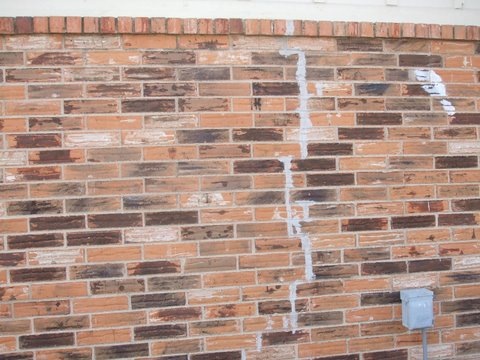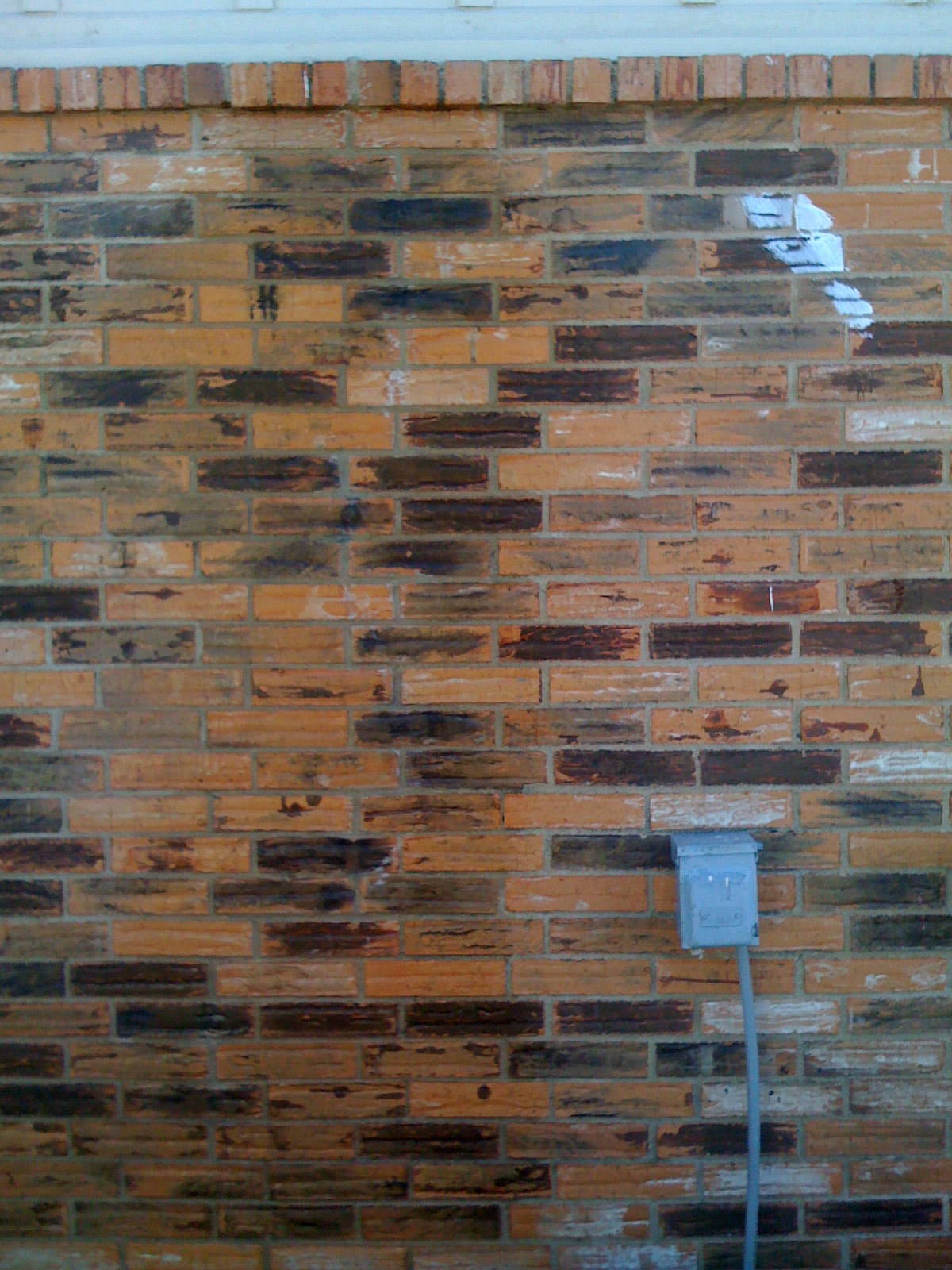

Welcome to Longhorn Masonry Repair.
We fix ugly masonry repairs with properly matching mortar. Get brick repair done right, the first time....or
Call Longhorn Masonry Repair to fix it.
Brick Repair Mortar
The most important part in
brick repair is the
mortar used. Each mortar is designed to perform differently. Some mortars
have a higher crushing pressure than others. This is very important to
remember when repairing the
brick mortar cracking.
If you use a mortar that is too hard, the results are going to be: a
variance in mortar color, the mortar will not bond properly to the
original mortar, the mortar will re-crack and fall out, and is likely to
cause damage to the faces of the brick.
The color variance is due to the amount of Portland cement and lime ratio. Lime tones out the color of the Portland. This also carries over into the next issue. The amount of lime in the original mortar compared to the amount in the new mortar will determine the mortar's ability to bond together.
A harder old mortar is more likely to be bonded with a softer new mortar, but bonds best to a mortar with a comparable crushing pressure. Mortars that crush or move at the same rate are less likely to come apart. The movement mentioned is regarding the expansion and contraction rates of the materials. When the two mortars don't bond together properly, they crack.
This crack is generally on all edges of the new mortar, and often where the new and old mortar meet. When they crack apart, the new mortar becomes loose and can fall out of the mortar joint. This is actually the best thing that can happen. Generally when this occurs, it is because the new mortar is too hard. If it comes loose from the old mortar, but remains in the mortar joint, it is likely bonded to the bricks themselves or in a bind where the bricks have moved and are pressing against the mortar. This tends to cause damage to the faces of the bricks.
As the mortar originally used should have been designed to be softer than the bricks, and the new mortar being harder is likely to be harder than the bricks also. This results in the faces of bricks chipping off or completely breaking away. This is why you should properly match the mortar for your brick repair projects. It may cost a bit more up front, but the other way is far more costly over all.
To get mortars custom matched through a mortar analysis test, visit http://mortarlab.com/ or ask your contractor if they use mortar testing to match your mortar, and if the mortars they intend to use were designed specifically for brick repair and other small projects. If the mortar they will use is produced by another company and they intend to remix the packaging, the mortar is not designed for brick repair.
Every pre-manufactured mortar is designed for full package use, and you can't take small portions out of the bag without breaking the manufacturer's ratios and changing the performance and crushing pressures of the product.
Brick Repair and Matching Mortar
Our services completely repair unsightly cracks and damage in your brick siding
making them virtually invisible. This repair helps to restore and maintain the
maximum value of your brick home.
We cover a full range of masonry repairs from new construction to various forms of repair (ranging from crack repair to brick replacement).
As you can see, masonry repairs look much better when the mortar is tested and properly
matched with our mortar matching services.


